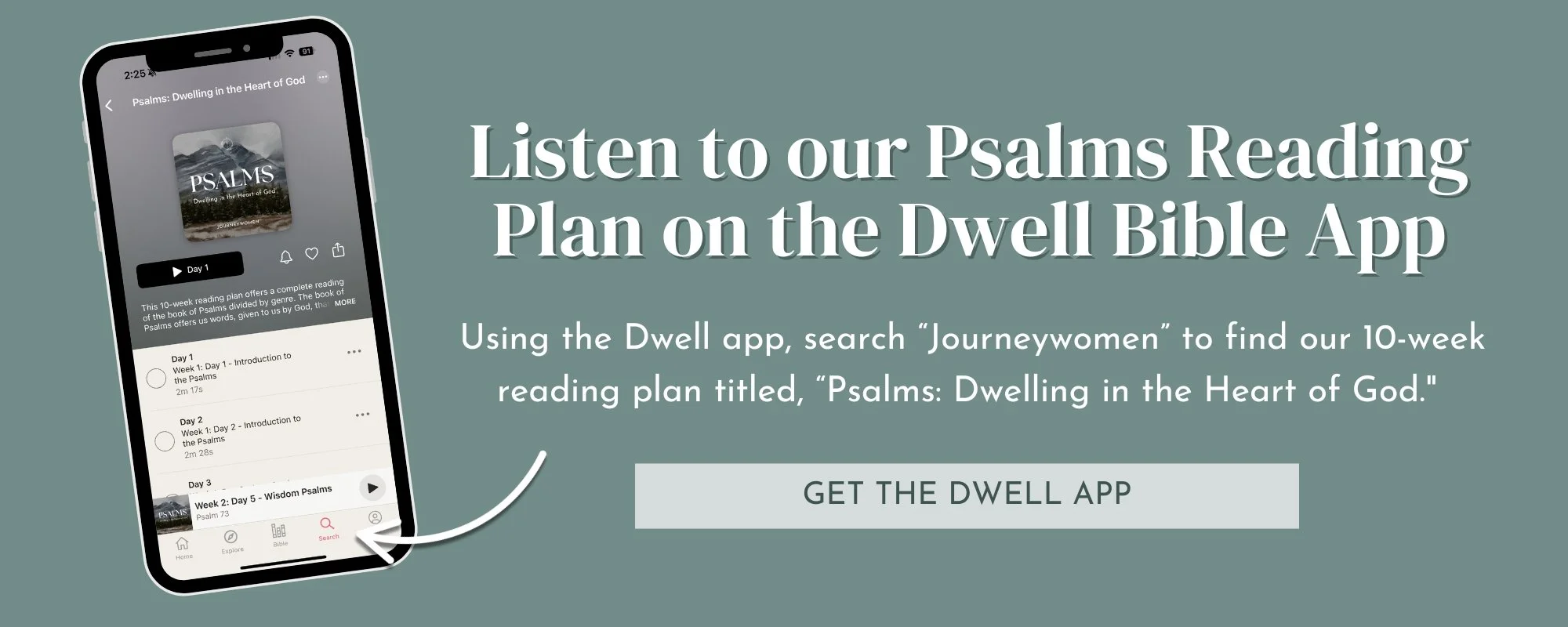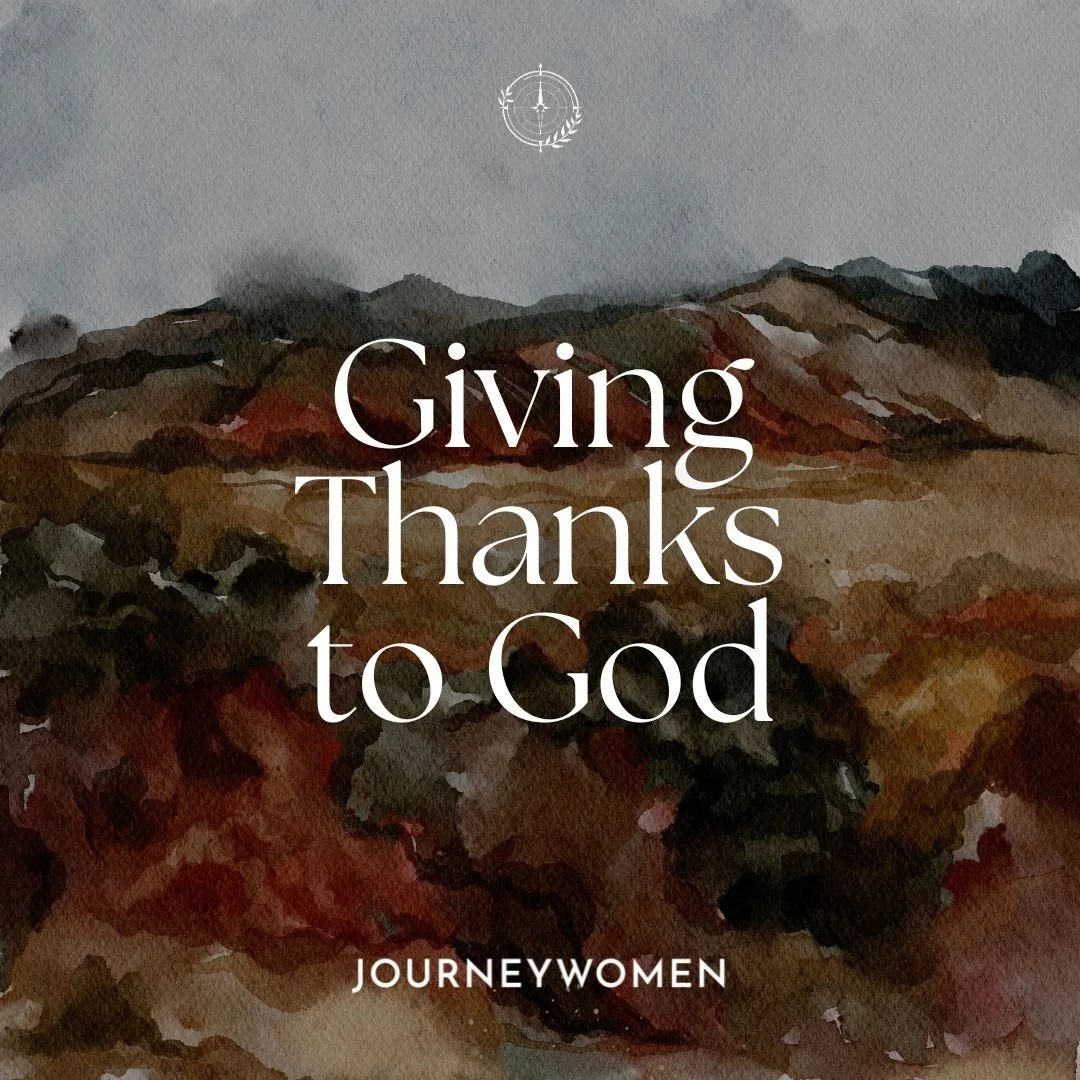Dwelling in the Heart of God with Dane Ortlund
Have you ever felt frustrated by life, ambushed by someone you thought was a close friend, or discouraged by your failing body? Have you ever felt that you just don’t know what to say to God in the midst of your pain? The book of Psalms offers us words, given to us by God, that we can speak back to him. They help to give voice to our joy, our distress, our confusion, and our thanksgiving so that we can lift our eyes and our hearts up to God. God has told us how to talk to him in the Psalms, we need simply to open his Word and speak it back to him.
In this week’s podcast episode, we’re chatting with Dane Ortlund about the Psalms. In our conversation, Dane gives some incredibly helpful background, overview, and context that will help you as you dive into the book of the Psalms. He also offers a wealth of encouragement to those who are walking through what the psalmist calls “the pit.” He reminds us of God’s heart to us in the midst of our pain, our sin, and our suffering, and he lifts our eyes to see Christ in this beautiful book of the Bible.
We pray this week’s episode reminds you of the gift it is that the Psalms offer a language for your deepest joy and pain, and we hope that the conversation prompts you to see God’s heart for you in Scripture.
INTERVIEW QUESTIONS
Could you give listeners a brief introduction to who you are, a bit about your family, and any projects you’ve worked on or might be working on?
What is your personal interaction/experience with the Psalms?
Could you give us an overview of the book of Psalms? Who wrote the Psalms? How are they structured/organized? What are some of the main themes we see in the Psalms?
What, specifically, does this poetic and unique book of Scripture offer to believers?
How are we (in our current culture and context and situations) meant to engage with and read through the Psalms?
Where do we see Christ in the Psalms?
Where do we see God’s heart (for believers, for sinners, for sufferers) in the Psalms?
What are some tangible ways that we as believers might cultivate a deeper heart for God’s Word?
Which psalm has had the greatest impact on you personally?
Would you pray for us, for the listeners, as we begin this podcast series/reading plan?
NOTES & QUOTES
“The Psalms are in the Bible to give us buoyancy and sanity and the ability simply to keep putting one foot in front of the other.”
“We're told to pray throughout the Scripture. The Psalms are prayers. To put it differently, the entire Scripture is God's word to us. There's one book of the Bible where while it is also God talking to us, God is saying, “Here's how you can talk to me.” So it's not only heaven to earth, the Psalms are earth to heaven.”
“God loves us so much and he is caring for us so poignantly and deeply and comprehensively. He's told us how to talk to him. We don't have to make it up.”
“Maybe we're really discouraged or we feel ambushed by someone we thought was a close friend or our body’s falling apart. And we sit here with tears streaming down our face early in the morning or late at night. We don't know what to say to God. We're just speechless. What do we do? We open up to Psalms and we start saying it aloud to God. God gave us words to speak back to him.”
“God is putting the words in our mouth, but he's doing so knowing what is going on in our hearts. So it's not mechanical, there's nothing robot-like about it. God is giving us words to express to him what's actually going on on the inside.”
“To take a Psalm such as ‘enemies pursuing you’... Maybe you don't have a human enemy pursuing you. At the very least, at the level of Ephesians 6 and spiritual warfare, you have an enemy: Satan, the devil, with his army, who is actually there. You have at least those enemies, and you can pray those kinds of Psalms with regard to them.”
“It's exhilarating to grow in seeing the total coherence of the Scripture and the Christ-centeredness of the Scripture.”
“Jesus himself claimed that all the Psalms are about him in Luke 24 and in John 5 and in other places in the New Testament.”
“Let's say it's a Psalm of confession of sin: Psalm 32, Psalm 130, Psalm 51. Jesus never sinned. So he doesn't fulfill that Psalm in the sense that he prays a psalm of confession. But he is the reason, ultimately, that any of us, whether a thousand years before he came when David was writing them or 2,000 years after he came, he's the reason we can pray a psalm of confession and get it and actually be freed of our sins. He fulfills it in that way.”
“What about a psalm of suffering? I'm just in the pit, the psalmist is saying. Jesus was too. Hebrews is very clear that except for sin, Jesus walked through every kind of suffering that we walk through, every single kind and more. Therefore, when we are suffering, we can pray a psalm of agony and know that Jesus himself knows exactly what it was like to walk through that.”
“So we take every psalm and we say, ‘Okay, here's this psalm. Here's the life, death, and resurrection of the Lord Jesus Christ. How does he fulfill it? How does it terminate in him?’”
“How much must God love us to give us expressions for our hearts' lamentation and groanings?”
“When we are praying a Psalm of lament, what's happening is God in the person of his Son is coming way, way, way down low to us, and he's putting his arm around us, and without compromising his divinity or his supreme radiant deity at all, he's weeping with us. He knows what it's like, and he's with us.”
“Isaiah 57 says God dwells in two places: way, way, way up high. And the other place he dwells is not right below that, almost way up high. No, he dwells way, way, way up high and way, way, way down low. And the psalms of lament are one way to see that, that actually, in a certain way, he's most strongly drawn to us when we are lamenting and sad. He comes way down low and is with us.”
“What we think is, ‘Okay, I'm really sad right now. I’ve got to get over this, get on top of this, get back to being the me that I project on Facebook, and then God will be really near to me.’ Actually, no. He is as near as ever. I think if you look at the Lord Jesus in Matthew, Mark, Luke, and John you can make a case in some sense, he's nearer to us than ever when we are in the pit.”
“We tend to think that smooth circumstances create smoothness and calm circumstances create calmness within. Not true. Stormy circumstances force me to God. The nearness of God is my good. That's actually what gives internal calm—the nearness of God.”
“All you need is God and you will make it. You're going to be okay. You have God. You have Him. He's with you. His hold on you is stronger than your hold on Him, happily, because you're screwed if that's not true. He is not going to let you go.”
“When I walk into the ocean with my youngest child, hanging on to him, pretty soon a wave comes and if it was about his hold on me, he would let go and be swept away. But I will not be letting go of him. Nothing could cause me to let go of him when I'm waist deep and he's up to his neck in waves. That's what it's like having God. And the Psalms just continually press refresh in our heart on that.”
“My soul clings to you, your right hand upholds me. We are hanging on to God, we really are, with all our strength. But that's not the deepest reality. He's holding on to us.”
“I think we give ourselves too much credit in assuming we naturally think rightly about what God is like. And actually, we're coming to the Psalms and they're correcting us and telling us, ‘No, actually, he's way better than you think.’”
“You struggle and stumble your way forward from today until the day you die, knowing that on the day you die, you will not have mastered it and you will still be needing to grow. That's all. So you get up tomorrow morning, whatever rhythm works for you in your life, whether you're married or single, whether you have kids in the home, whether there's a crying baby up multiple times throughout the night, or whether you're an empty nester, you find a time and you ruthlessly protect it with all your heart from interruptions. You shut your phone off and you spend time in God’s Word.”
“Leverage the pain in your life into Bible depth. Don't let the pain in your life push you away from the Bible towards Tylenol or alcohol. Leverage the pain in your life into the Bible.”
“Martin Luther once said that what you need to be a great theologian is prayer, meditation, and suffering.”
“When you suffer, it gives you a clearer hermeneutic for the Scripture. Actually, the Scripture pops when you're in pain. It becomes clearer.”
“God cares for us so deeply. It's not only Father, Son, and Spirit caring for us. He sends his angels to encamp around us too.”
“My brokenheartedness is a divine magnet. When I'm brokenhearted, he draws in. He doesn't pull out the way we people do. When I see someone who's a mess, I want to go around them, not to them. That's not what God is like.”
“Our Father in heaven. We lay our lives before you once more and each of us in this moment as we do so are mindful that you are actually there. You are with us by your Spirit. You are in us. You are for us. And we reject all of our bad thinking about you and according to the truth of the Psalms, embrace all that you claim about yourself. And I pray for each person who is engaging in this journey through the Psalms, through this podcast, that you would give them Psalm 34:5, that those who look to you are radiant. Give brightness, glow, resplendence, glory, beauty, and radiance to each one as they deepen in their walk with you through the Psalms. In Jesus' name, Amen.”
RESOURCES
Gentle and Lowly: The Heart of Christ for Sinners and Sufferers
Deeper: Real Change for Real Sinners
In the Lord I Take Refuge: 150 Daily Devotions Through the Psalms
DISCUSSION QUESTIONS
What is your personal interaction/experience with the Psalms?
Describe a circumstance where God met you in your own dark valley or “pit,” as the psalmist says.
How, specifically, did this week’s episode remind you of God’s heart for you?
What is one tangible way that you can cultivate a deeper heart for God’s Word this week?
Is there a psalm that has had a great impact on you personally? Consider memorizing it this summer!
RECENT ARTICLES
IMPORTANT NOTE
Journeywomen interviews are intended to serve as a springboard for continued study in the context of your local church. While we carefully select guests each week, interviews do not imply Journeywomen's endorsement of all writings and positions of the interviewee or any other resources mentioned.
Affiliate links used are used where appropriate. Thank you for supporting the products that support Journeywomen!
FOR MORE OF JOURNEYWOMEN
Subscribe: Apple Podcasts | Spotify
Follow Us: Instagram | Facebook
Support the podcast by writing a review



















